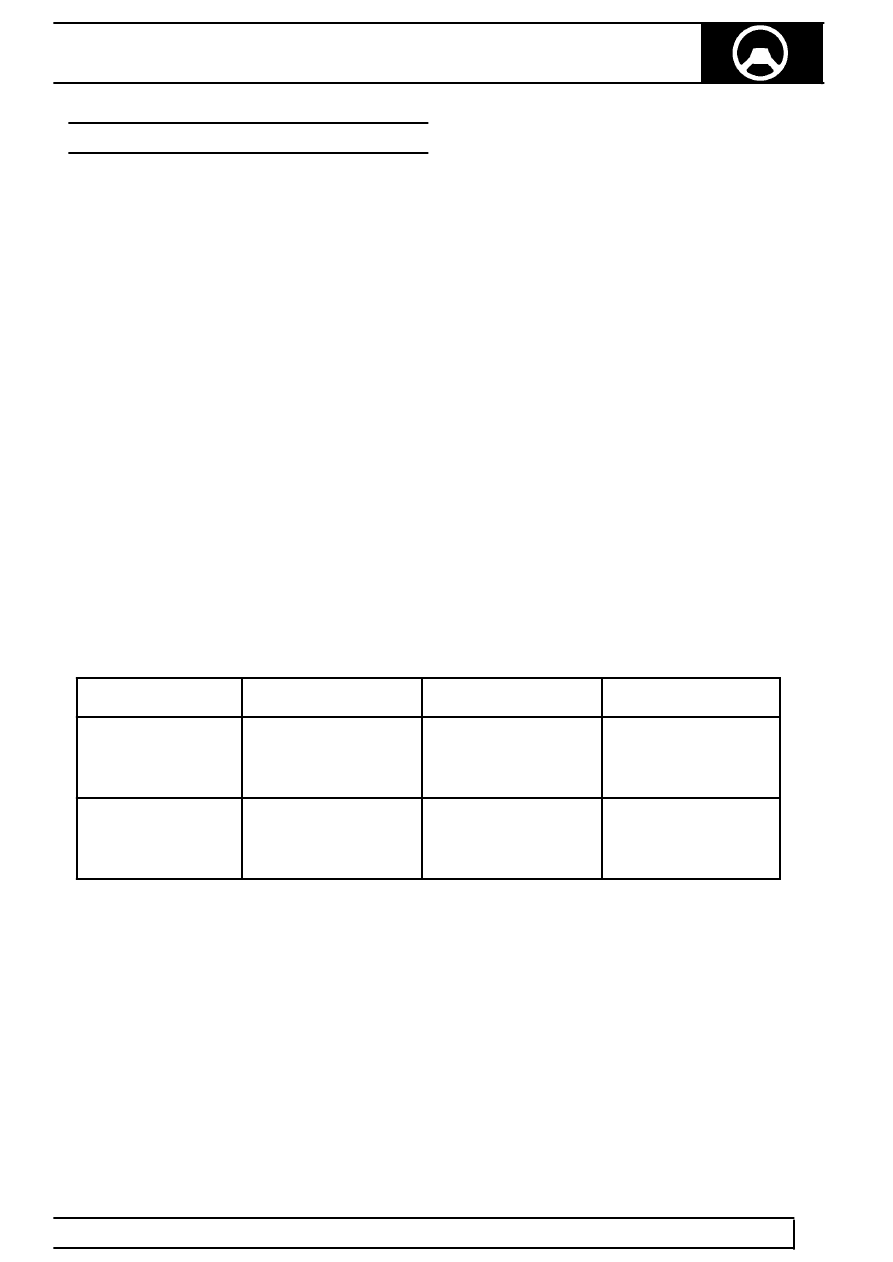Range Rover P38

STEERING
1
DESCRIPTION AND OPERATION
STEERING SYSTEM
Description
The steering system incorporates a safety steering
column, designed to collapse on impact. The tilt and
axial position of the column are adjustable, operated
by a single column mounted control. The range of tilt
and axial adjustment available depends on Model
Year and market.
The design of the intermediate steering shaft prevents
a frontal impact moving the upper column towards the
driver. The intermediate shaft has a red indicator clip
fitted which must be inspected at service, and after
the vehicle has been subjected to an impact. If the clip
is not present, or is not fully seated against the clamp
plate, a new assembly must be fitted. The steering
box is connected to the road wheels by the drag link
and track rod. A hydraulic steering damper connected
between the drag link and chassis absorbs shocks in
the steering caused by road wheel deflections when
operating on rough terrain.
Power steering
The power steering system consists of an hydraulic
pump, a power steering box and a fluid reservoir.
The fluid reservoir supplies fluid to the hydraulic
pump. This vane type pump is belt driven from the
front of the engine. Pressurised fluid flows via a
pressure and flow limiting valve to the power steering
box. In the steering box, valve spools operated by
movement of the steering wheel direct fluid pressure
to the appropriate side of the piston to provide power
assistance.
Steering column adjustment range
Model year
Market
Tilt positions
Axial movement,
mm (in)
Up to 97.5
All except Japan and
NAS
5
64 (2.5)
Japan
3
64 (2.5)
NAS
3
64 (2.5)
From 97.5
All except Japan and
NAS
5
64 (2.5)
Japan
5
64 (2.5)
NAS
8
34 (1.3)
